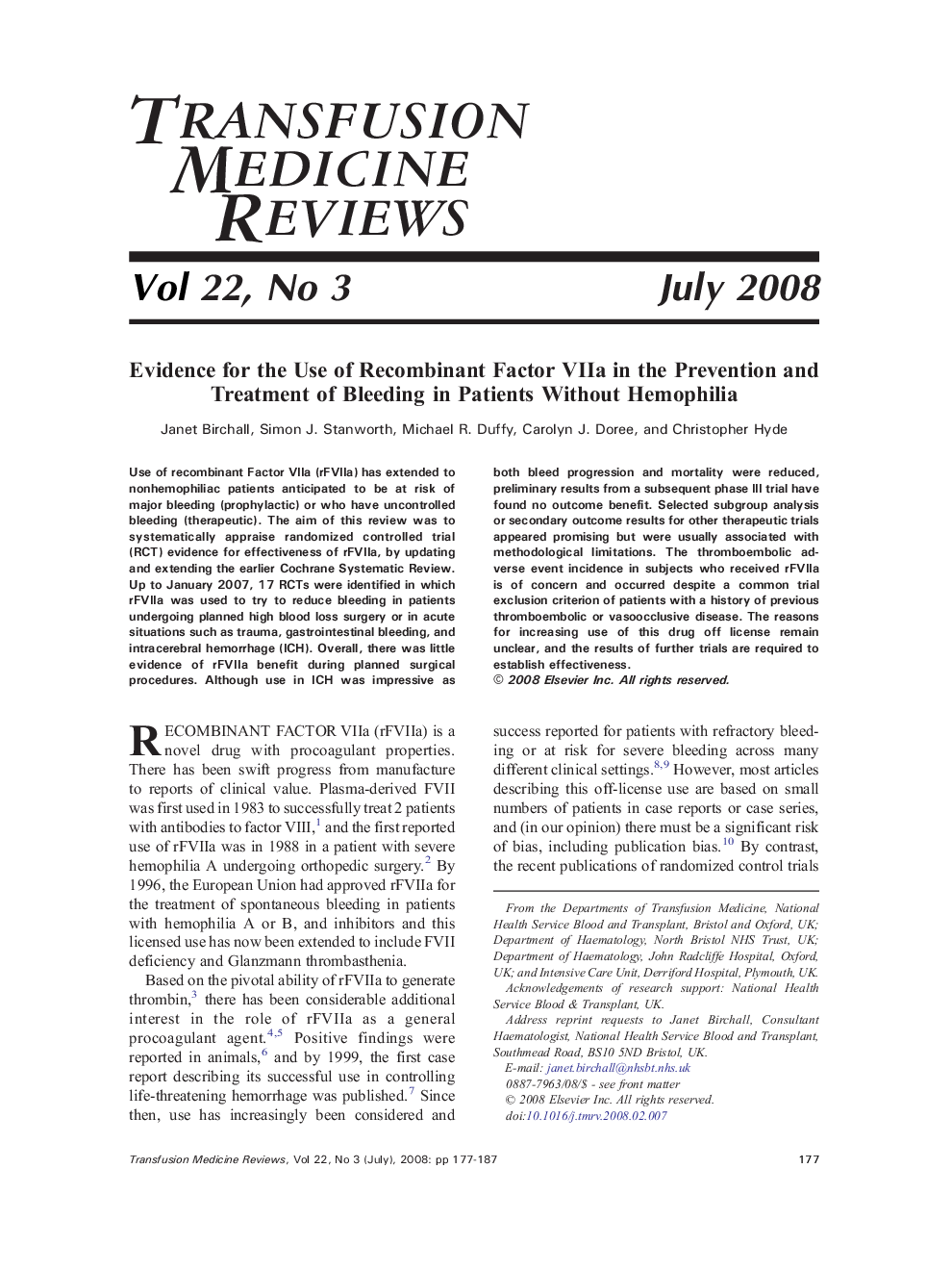| Article ID | Journal | Published Year | Pages | File Type |
|---|---|---|---|---|
| 3336720 | Transfusion Medicine Reviews | 2008 | 11 Pages |
Use of recombinant Factor VIIa (rFVIIa) has extended to nonhemophiliac patients anticipated to be at risk of major bleeding (prophylactic) or who have uncontrolled bleeding (therapeutic). The aim of this review was to systematically appraise randomized controlled trial (RCT) evidence for effectiveness of rFVIIa, by updating and extending the earlier Cochrane Systematic Review. Up to January 2007, 17 RCTs were identified in which rFVIIa was used to try to reduce bleeding in patients undergoing planned high blood loss surgery or in acute situations such as trauma, gastrointestinal bleeding, and intracerebral hemorrhage (ICH). Overall, there was little evidence of rFVIIa benefit during planned surgical procedures. Although use in ICH was impressive as both bleed progression and mortality were reduced, preliminary results from a subsequent phase III trial have found no outcome benefit. Selected subgroup analysis or secondary outcome results for other therapeutic trials appeared promising but were usually associated with methodological limitations. The thromboembolic adverse event incidence in subjects who received rFVIIa is of concern and occurred despite a common trial exclusion criterion of patients with a history of previous thromboembolic or vasoocclusive disease. The reasons for increasing use of this drug off license remain unclear, and the results of further trials are required to establish effectiveness.
